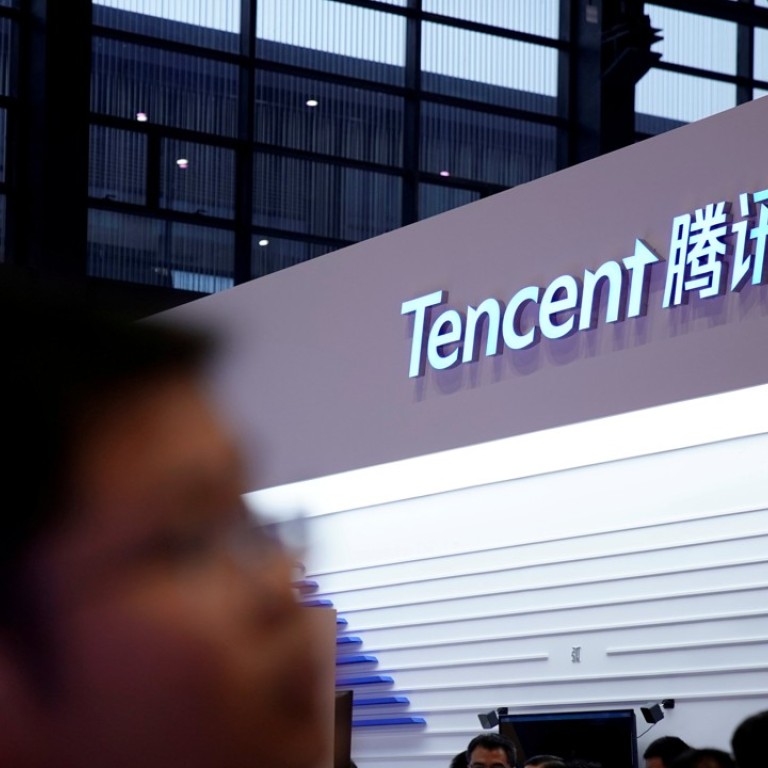
Tencent sees focus of internet development shifting from consumers to business in next two decades
- Tencent holds its partners’ day in Nanjing on the eve of its 20th anniversary
- Tencent sets out industrial internet ambitions as government clamps down on cash cow of online gaming
The next 20 years of internet development will centre on “2B”, or services to businesses, shifting from a focus on consumers in the past two decades, according to Tencent Holdings executives at the company’s partners’ day in Nanjing, China.
“Tencent will play a role of being an assistant to help the internet integrate smart retail, medical, education as well as the manufacturing sectors,” Dowson Tong, president of Tencent’s newly established Cloud & Smart Industries Group, said in the opening speech at the two-day event. “In the coming two decades, Tencent will join with all partners to embrace industrial internet.”
Pony Ma sets out Tencent’s industrial internet ambitions
The comments by Tencent executives about embracing the so-called industrial internet come on the heels of an open letter by co-founder and chairman Pony Ma Huateng, who said that the company wants to enable greater connectivity across Chinese industry, leveraging the capabilities and expertise it has built to serve the billion-plus users of its consumer-facing platforms, enhancing products and services.
The new direction is in line with China’s wider ambitions to lift its industries up the value chain and better compete globally in emerging technologies, such as artificial intelligence, in what has been dubbed the Fourth Industrial Revolution. The Nanjing event is Tencent’s first large-scale gathering since it announced the strategic reorganisation.
Ma did not take to the stage to give a speech, allowing his lieutenants to outline the group’s various business initiatives in the medical, education as well as fintech fields.
Tencent vice-president Qiu Yuepeng said the company will increase its investment incloud business and will establish a business school devoted to cloud enterprise with Peking University’s Guanghua School of Management. Ma will be the honorary head of the new school.
“The usage amount of cloud will be an important index to measure a country’s economy development,” Qiu added.
The sharper focus on cloud services would appear to reinforce Tencent’s role as one of China’s designated artificial intelligence (AI) champions, a list which also includes Baidu, iFlyTek, facial recognition start-up SenseTime and Alibaba Group Holding, the owner of South China Morning Post.
Short-form video is another sector that the Chinese internet giant is lagging behind competitors like ByteDance, whose artificial intelligence-driven recommendation algorithms for news and short videos have captured market share and eyeballs away from Tencent’s own platforms. But Tencent is still bullish about the potential of the short-video market.
“The short video space is not saturating … but is still at the brink of a full explosion,” said Lin Songtao, vice-president of Tencent. One of Tencent’s latest attempts in the field is Yoo, a short-video app targeting young people eager to showcase their unique personalities.
To keep the best content on Tencent’s platforms, the company will launch WeSpace, an offline platform that provides filming studios, equipment, offline space and other resources for the content creators.


